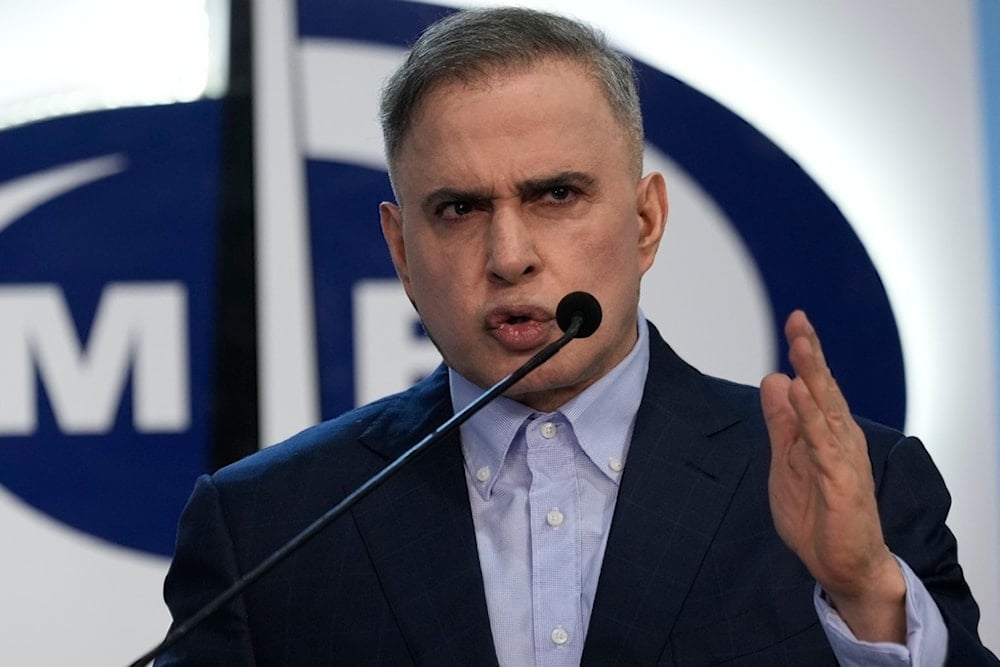Venezuela accuses Lula of staging accident to justify BRICS veto
Venezuela, which had high hopes for BRICS membership, reacted strongly to the veto, condemning Brazil's Foreign Ministry's decision as "hostile" and "immoral".
-

Attorney General Tarek William Saab speaks during a press conference in Caracas, Venezuela, Wednesday, Sept. 18 2024. (AP Photo/Ariana Cubillos)
Venezuela's Attorney General Tarek William Saab on Saturday accused Brazilian President Luiz Inacio Lula da Silva of faking a recent accident to sidestep a crucial BRICS summit, where Venezuela's entry into the bloc was vetoed by Brazil.
Saab said "direct sources" informed him that Lula staged his accident as a calculated excuse to avoid the summit, thereby facilitating Brazil's veto against Venezuela's BRICS membership bid.
Lula, who was scheduled to attend the summit in Kazan, Russia, canceled his trip following an injury at home. Brazilian authorities stated he was acting on doctors' advice, though he returned to work three days later.
Saab, however, suggested that a video showing Lula "in good health… smiling and unscathed” raised questions about the accident's legitimacy.
#EnVideo 📹 | El Fiscal General de la República, Tarek William Saab, dio a conocer este sábado a través de un escrito que el presidente de Brasil, Luiz Inácio Lula da Silva, “manipuló un presunto accidente” para no asistir a la Cumbre BRICS, “y que esa versión no fue más que un… pic.twitter.com/oQS0y5B863
— El Universal (@ElUniversal) October 26, 2024
He went on to call for an investigation into what he termed "a deception to perpetrate the veto against Venezuela."
Venezuela, which had high hopes for BRICS membership, reacted strongly to the veto, condemning Brazil's Foreign Ministry's decision as "hostile" and "immoral" in an official statement.
Notably, the statement avoided direct criticism of Lula himself, focusing instead on institutional discontent with the Brazilian Foreign Ministry.
Breach of confidence
The origins of the veto appear tied to a "breach of confidence," as explained by Lula's senior advisor and former foreign minister, Celso Amorim.
According to Amorim, Venezuelan President Nicolas Maduro had agreed to publish the July 28 election results as a gesture of transparency; however, the results remain undisclosed.
The National Electoral Council (CNE) had announced Maduro as the winner with 52% of votes, but the results had been met with rejection from the opposition, the US the EU, and several Latin American countries, calling on Venezuelan authorities to publish election data.
The opposition contends that its own tally of polling station results showed Gonzalez Urrutia, 74, securing more than two-thirds of the votes.
However, Venezuela's electoral authority has been unable to provide a full breakdown of the election results, attributing the delay to a cyberattack on its systems.
Maduro's win also sparked nationwide Western-backed riots and violence, which left dozens killed, injured, and detained.
Brazil has remained largely silent on the accusation of a staged accident. Meanwhile, Caracas remains resolute in seeking an international platform within the BRICS bloc, though relations with Brasilia appear strained as both sides trade allegations in an increasingly public feud.
Read more: Relations between Russia, Venezuela continue to strengthen: Putin

 3 Min Read
3 Min Read








